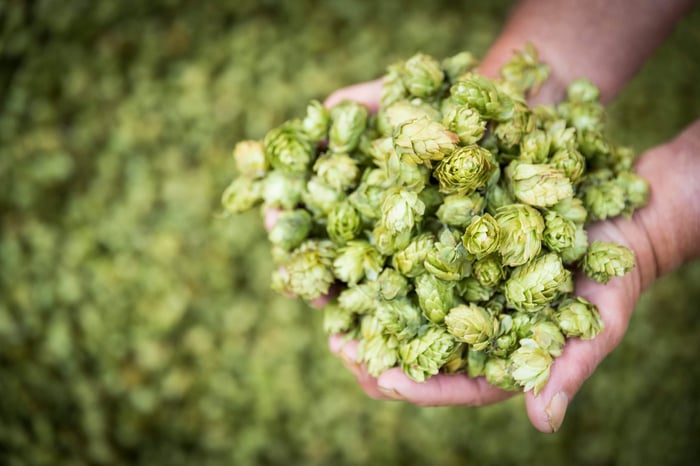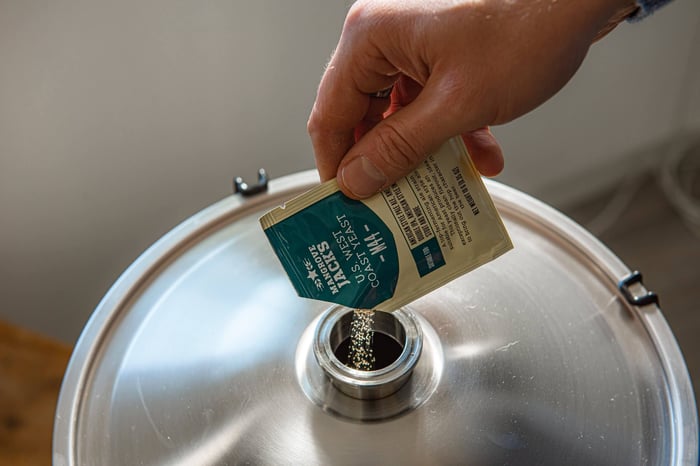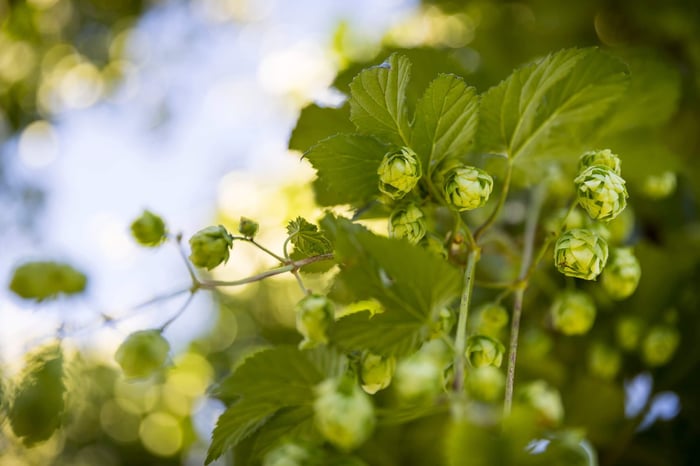Let's talk about something that's hiding in plain sight in every single brew you make. We all bang on about malt quality, hop character, and yeast health, but what about that fourth ingredient that makes up over 90% of your finished pint? That's right—water.
Here's the thing: you can have the finest Maris Otter, the choicest Fuggles, and perfectly healthy yeast, but if your water's not up to scratch, your beer won't be either. The difference between a decent pint and one that makes you sit back and go "blimey, that's good" often comes down to getting your brewing water sorted properly.
British Water: Know What You're Working With
Living in Britain means dealing with some rather interesting water situations. Let's break down what you're likely facing based on your local supply.
Mains Water Supply Your local water company adds chlorine or chloramines to keep nasties at bay as water travels through the system. Brilliant for keeping us healthy, not so brilliant for our yeast. These chemicals can create some right awful flavours if left unchecked.
Private Wells and Springs Rural brewers often deal with water that's picked up all sorts of minerals and metals on its underground journey. Iron is particularly troublesome, giving your beer a metallic taste that's about as appealing as licking a two pence coin.
Bottled Water For consistency and safety, shop-bought water is hard to beat. Just steer clear of those fancy mineral waters—they're loaded with stuff that'll throw your carefully planned recipes right out the window.
Consider this: Burton-on-Trent's famously hard water helped create the perfect conditions for their legendary IPAs, whilst the soft water of Pilsen gave us crisp, clean lagers. Your local water has its own character—learn to work with it or modify it accordingly.
Sorting Out Common Water Problems
Getting some dodgy flavours in your brews? Here's how to get to the bottom of water-related issues:
Troubleshooting Off-Flavours
TCP or Medicinal Taste If your beer tastes like antiseptic, you've got chlorophenols forming when chlorine meets your yeast. Sort this with a carbon filter, Campden tablets, or boiling your water for seven minutes before brewing.
Metallic or Penny-Like Flavours This screams iron contamination. Get your water properly filtered or treated to remove heavy metals.
Struggling with Specific Beer Styles Consistently brilliant with bitters but your milds fall flat? Or perhaps your pale ales shine whilst your porters disappoint? Your water's mineral content favours certain styles. Either stick to what works or learn to adjust your water chemistry.
Think about traditional British brewing regions: London's hard water produced excellent porters, Burton's gypsum-rich water created legendary IPAs, and Edinburgh's soft water crafted superb pale ales. Each region's water shaped its brewing tradition.
Getting Technical: The Chemistry Behind Great Beer
When you're ready to take your brewing from good to absolutely smashing, it's time to understand what's actually happening in your water.
pH: Getting the Balance Right
pH affects every single step of your brewing process:
During the Mash: Keep it between 5.2-5.6 for proper enzyme activity—this is where your starches convert to fermentable sugars.
Throughout the Boil: pH naturally drops due to hop acids and Maillard reactions.
During Fermentation: Drops further to 4.0-4.5, creating conditions that protect against spoilage bacteria.
The Grainfather water calculator takes the guesswork out of pH adjustments, factoring in your specific grain bill and target style.
The Ion Team: What Each Mineral Does for Your Beer
Understanding these key players helps you craft water that complements your brewing goals:
Calcium: The Unsung Hero Doesn't add flavour but handles crucial brewing tasks:
- Improves mash acidity (essential with alkaline water)
- Supports enzyme function during conversion
- Enhances hop bitterness extraction
- Reduces haze and lightens wort colour
Add calcium through gypsum (calcium sulphate) or calcium chloride—avoid chalk (calcium carbonate) as it's poorly soluble.
Magnesium: The Support Act Works alongside calcium to promote enzyme activity and provides yeast nutrition. Small amounts can actually improve your beer's overall flavour complexity.
The Great Balance: Sulphates vs Chlorides This ratio determines whether your beer leans hoppy or malty:
Chlorides enhance malt character, boost sweetness perception, and improve mouthfeel. Perfect for traditional British ales, milds, and malt-forward styles.
Sulphates emphasise hop character and bitterness whilst creating a crisp, dry finish. Essential for IPAs and other hop-forward styles.
Higher sulphate levels = hoppy character (think Burton IPAs) Higher chloride levels = malty character (think London porters) Balanced levels = well-rounded beer
Sodium: Use Sparingly Can enhance flavour and mouthfeel in small doses but becomes harsh and salty quickly. Never use table salt with iodine—it's toxic to yeast.
Making It Simple: Digital Water Chemistry
Water chemistry calculations can seem overwhelming, but we've made it straightforward. The Grainfather app's integrated water calculator considers your brewing setup, source water profile, and recipe to recommend exactly what salts and acids you need.
No more crossed fingers hoping your water works—you'll know it's spot on for your intended style.
Common Questions About Brewing Water
What if I can't get a water analysis?Start with the basic rule: if it tastes good to drink, it's probably fine for brewing. Focus on removing chlorine/chloramines first, then experiment with small adjustments.
Should I adjust water for every brew?Not necessarily. If your water works well for certain styles, stick with those until you're ready to expand. Many excellent brewers work within their water's natural limitations.
How much difference does water chemistry actually make?It can be transformational. Many brewers report significant improvements in clarity, flavour balance, and overall drinkability after proper water treatment.
Ready to Transform Your Brewing?
Water chemistry isn't just for commercial brewers or chemistry graduates. It's a practical skill that can elevate your homebrew from "not bad" to "absolutely brilliant." Start simple, make small changes, and taste the difference.
Have any questions about water chemistry? Drop us a line - Our team is happy to assist.
For more brewing knowledge to sharpen your skills, check out our comprehensive Brewing 101 series. Because proper brewing starts with proper fundamentals.
Grainfather Team










